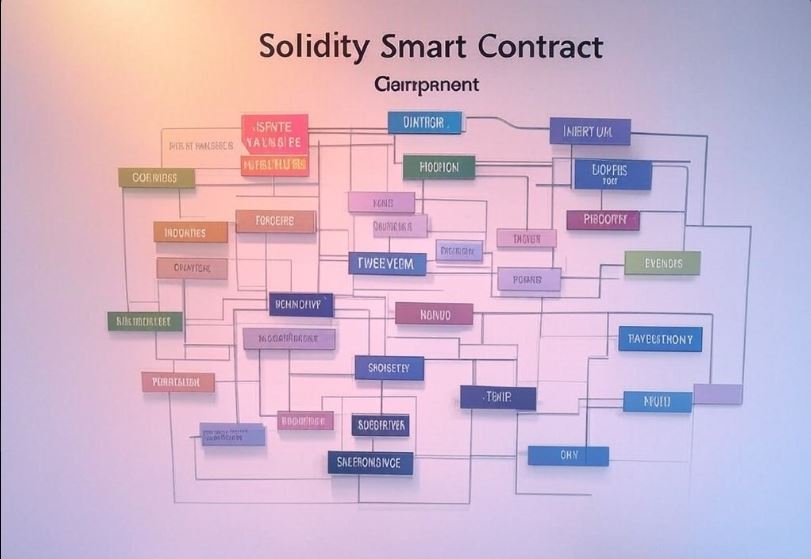
Front-Running in Blockchain Transactions
Blockchain technology has revolutionized the way we handle transactions, enabling trustless and decentralized systems. However, it also introduces unique challenges, one of which is front-running. This article will explain what front-running is, how it impacts blockchain transactions, and provide solutions to mitigate it. Additionally, we’ll showcase how Web3Dev, a leading Web3 development agency, can help you build secure and efficient decentralized systems.
What is Front-Running?
Front-running occurs when a malicious actor exploits the transparency of blockchain transactions to gain an unfair advantage. In a blockchain network, transactions are visible in the mempool (the pool of unconfirmed transactions) before they are included in a block. A front-runner observes these pending transactions, identifies profitable opportunities, and submits their own transaction with a higher gas fee to ensure it is processed first.
This issue is particularly prevalent in decentralized finance (DeFi) applications, such as decentralized exchanges (DEXs), where the order of transactions can significantly impact outcomes like token prices or arbitrage opportunities.
How Does Front-Running Work?
Here’s an example of how front-running can occur in a DEX:
- Step 1: A user submits a transaction to buy a large amount of a token, which is likely to increase its price due to low liquidity.
- Step 2: A front-runner observes this transaction in the mempool and quickly submits their own buy order with a higher gas fee.
- Step 3: The front-runner’s transaction is processed first, buying the token at the lower price.
- Step 4: The user’s transaction is processed, driving up the token price.
- Step 5: The front-runner sells the token at the higher price, making a profit at the user’s expense.
The Impact of Front-Running
Front-running can lead to:
- Unfair advantages: Malicious actors profit at the expense of legitimate users.
- Increased costs: Users must pay higher gas fees to compete, making transactions more expensive.
- Reduced trust: Users may lose confidence in decentralized systems if they perceive them as unfair or exploitable.
Solutions to Mitigate Front-Running
1. Use Commit-Reveal Schemes
A commit-reveal scheme involves two phases:
- Commit: Users submit a hashed version of their transaction (e.g., the token amount and price) without revealing the details.
- Reveal: After a delay, users reveal the details of their transaction, which are then executed.
This approach prevents front-runners from acting on incomplete information.
2. Implement Fair Ordering Mechanisms
Some blockchain networks and protocols are exploring fair ordering mechanisms to ensure transactions are processed in the order they are received, rather than based on gas fees. For example:
- Chainlink Fair Sequencing Services (FSS): A decentralized solution that ensures transactions are ordered fairly.
- Submarine Sends: A technique that hides transaction details until they are ready to be executed.
3. Batch Transactions
Batching multiple transactions into a single block can reduce the opportunity for front-running. This is commonly used in decentralized exchanges like Uniswap V3, where liquidity providers can bundle transactions to minimize price impact.
4. Use Private Mempools
Some networks, like Ethereum with Flashbots, allow users to submit transactions directly to miners without exposing them to the public mempool. This reduces the risk of front-running.
5. Optimize Gas Fees
While not a complete solution, setting competitive gas fees can help reduce the likelihood of being front-run. Tools like GasNow or Etherscan Gas Tracker can help users estimate appropriate gas fees.
How Web3Dev Can Help
At Web3Dev, we specialize in building secure, efficient, and innovative Web3 solutions. Our team of blockchain experts can help you:
- Design Secure Protocols: We implement advanced techniques like commit-reveal schemes and fair ordering mechanisms to protect your dApps from front-running.
- Optimize Transaction Handling: We develop strategies to batch transactions and minimize exposure to the mempool.
- Integrate Private Mempools: We leverage solutions like Flashbots to ensure your transactions remain confidential.
- Conduct Security Audits: Our thorough auditing process identifies and mitigates vulnerabilities in your smart contracts and protocols.
- Build Custom dApps: From DeFi platforms to NFT marketplaces, we create tailored solutions to meet your business needs.
Don’t let front-running or other blockchain vulnerabilities compromise your project. Partner with Web3Dev to build with confidence and security.
Contact Web3Dev today to schedule a consultation and take your Web3 project to the next level!



No Comments